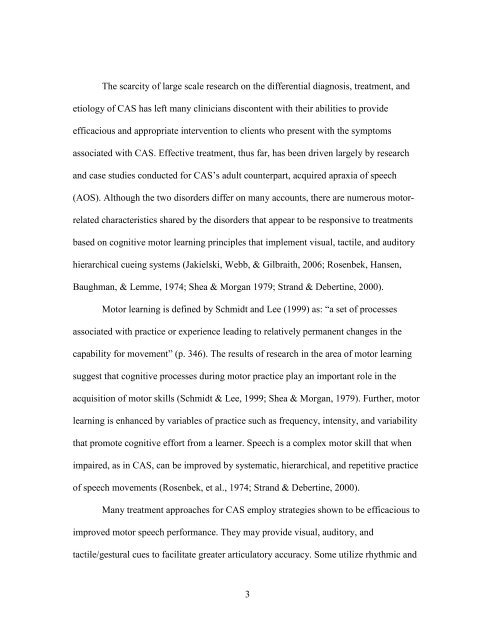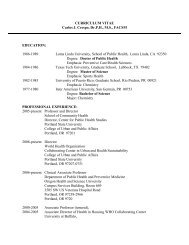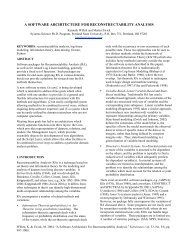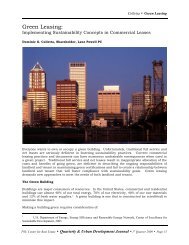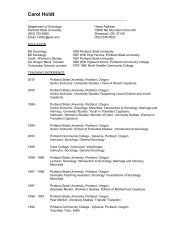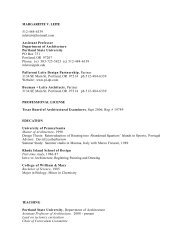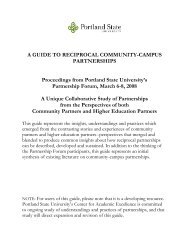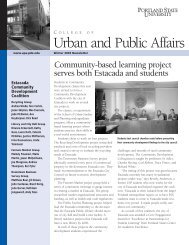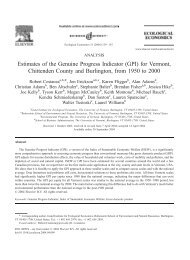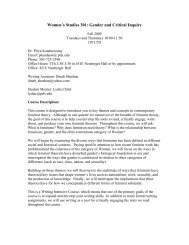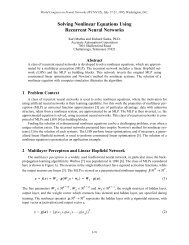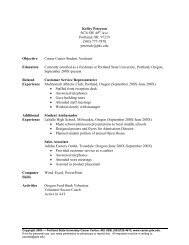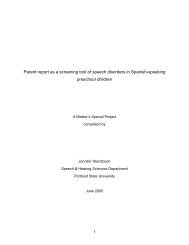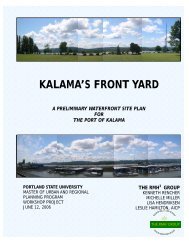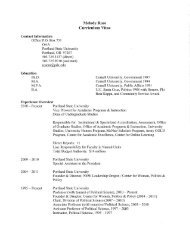Effects of integral stimulation therapy on speech - Portland State ...
Effects of integral stimulation therapy on speech - Portland State ...
Effects of integral stimulation therapy on speech - Portland State ...
Create successful ePaper yourself
Turn your PDF publications into a flip-book with our unique Google optimized e-Paper software.
The scarcity <str<strong>on</strong>g>of</str<strong>on</strong>g> large scale research <strong>on</strong> the differential diagnosis, treatment, and<br />
etiology <str<strong>on</strong>g>of</str<strong>on</strong>g> CAS has left many clinicians disc<strong>on</strong>tent with their abilities to provide<br />
efficacious and appropriate interventi<strong>on</strong> to clients who present with the symptoms<br />
associated with CAS. Effective treatment, thus far, has been driven largely by research<br />
and case studies c<strong>on</strong>ducted for CAS’s adult counterpart, acquired apraxia <str<strong>on</strong>g>of</str<strong>on</strong>g> <strong>speech</strong><br />
(AOS). Although the two disorders differ <strong>on</strong> many accounts, there are numerous motorrelated<br />
characteristics shared by the disorders that appear to be resp<strong>on</strong>sive to treatments<br />
based <strong>on</strong> cognitive motor learning principles that implement visual, tactile, and auditory<br />
hierarchical cueing systems (Jakielski, Webb, & Gilbraith, 2006; Rosenbek, Hansen,<br />
Baughman, & Lemme, 1974; Shea & Morgan 1979; Strand & Debertine, 2000).<br />
Motor learning is defined by Schmidt and Lee (1999) as: “a set <str<strong>on</strong>g>of</str<strong>on</strong>g> processes<br />
associated with practice or experience leading to relatively permanent changes in the<br />
capability for movement” (p. 346). The results <str<strong>on</strong>g>of</str<strong>on</strong>g> research in the area <str<strong>on</strong>g>of</str<strong>on</strong>g> motor learning<br />
suggest that cognitive processes during motor practice play an important role in the<br />
acquisiti<strong>on</strong> <str<strong>on</strong>g>of</str<strong>on</strong>g> motor skills (Schmidt & Lee, 1999; Shea & Morgan, 1979). Further, motor<br />
learning is enhanced by variables <str<strong>on</strong>g>of</str<strong>on</strong>g> practice such as frequency, intensity, and variability<br />
that promote cognitive effort from a learner. Speech is a complex motor skill that when<br />
impaired, as in CAS, can be improved by systematic, hierarchical, and repetitive practice<br />
<str<strong>on</strong>g>of</str<strong>on</strong>g> <strong>speech</strong> movements (Rosenbek, et al., 1974; Strand & Debertine, 2000).<br />
Many treatment approaches for CAS employ strategies shown to be efficacious to<br />
improved motor <strong>speech</strong> performance. They may provide visual, auditory, and<br />
tactile/gestural cues to facilitate greater articulatory accuracy. Some utilize rhythmic and<br />
3


